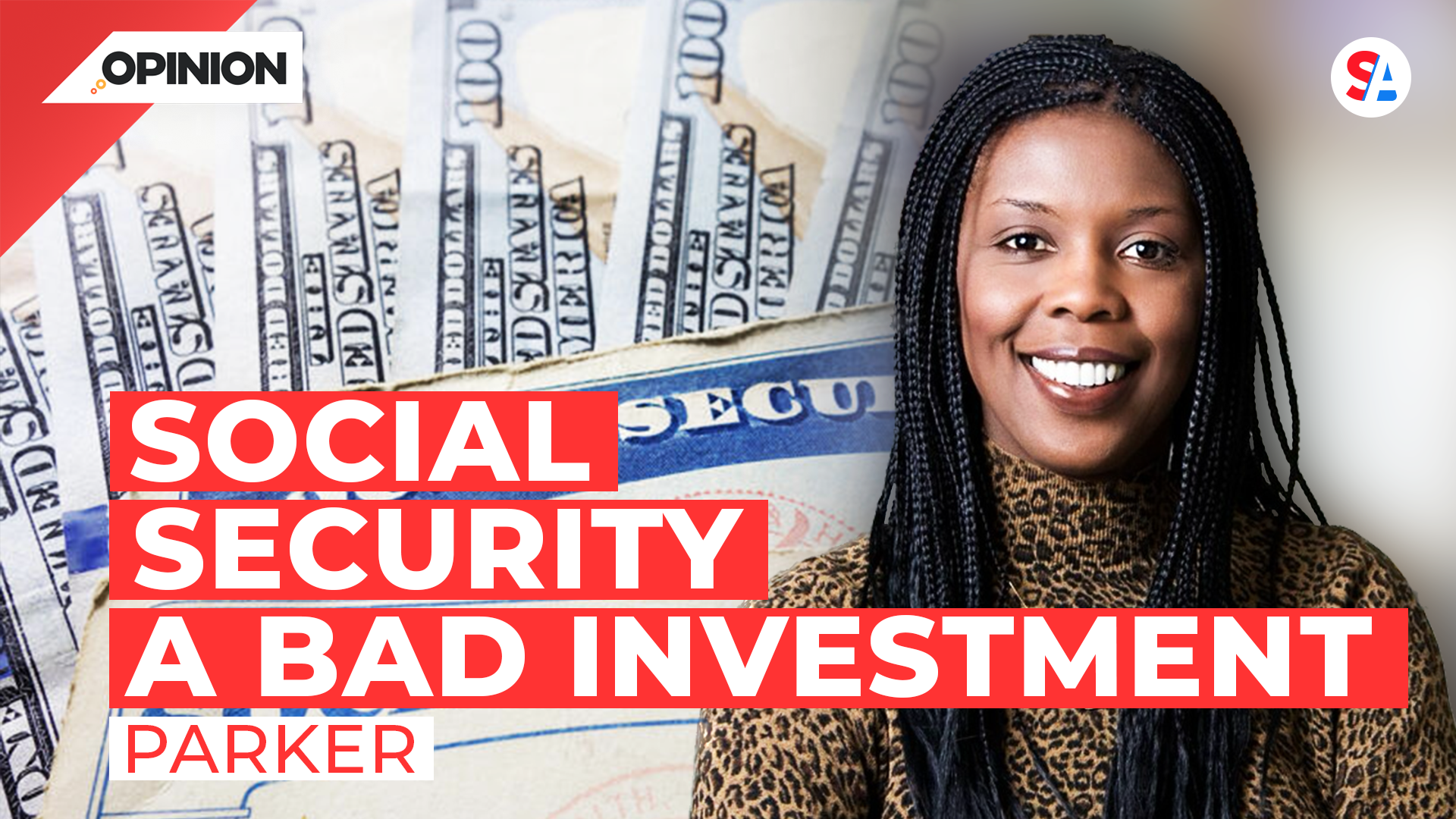
Commentary
-
Our commentary partners will help you reach your own conclusions on complex topics.
As President Biden and Democrats sharpen their blades to attack Republicans on Social Security, it’s important for all of us to remember the facts. According to the latest Social Security Trustees report, there’s an unfunded obligation of $20.4 trillion through 2096. In real terms, this means that the trust fund reserves are projected to become depleted in 2034, at which time the system will be able to pay only 77% of scheduled benefits. That means doing nothing will automatically force deep cuts of 23% to everyone that’s on Social Security; to everyone’s social security benefits, just everyone.
So for them to keep saying they’re gonna cut, they’re gonna cut …no, this is automatic. Despite the popular spin, those screaming, “Don’t touch Social Security” are not the ones protecting the program or your future.
Doing nothing puts Social Security at immense risk. Likewise, according to the Committee to Unleash Prosperity, the average return for typical middle-class worker on Social Security over the last 40 years was 1%, compared to 6% for stocks. Even if Social Security was financially stable, it would still present a massive opportunity cost for Americans. This isn’t an opinion, this is fact. This isn’t politics; it’s math. Similarly, we can raise taxes and rob the young to pay for those of us that are older, well … or we can build a system that harnesses the power of the market to build real wealth.
Clearly, many don’t trust the markets with their retirement. This unease is often exaggerated by progressives. They just keep on and on and on as if … people think it’s rocket science to manage their own money. Many of … these progressives are far richer than the average American. They make ample use of private investment accounts. Yes, private investment accounts. They use them, but nobody else should. The irony that’s lost in the social security debate is that millionaires like Joe Biden, Joy Reid, Rachel Maddow … don’t trust their retirement securities to the government, but regularly dish out ill advice to those that are following them and their constituents. “Don’t do like I do. Don’t make money. Don’t trust the markets.” Oh, no, we should trust the markets more than we trust government bureaucrats and politicians.
The debate over the future of social security is bigger than one program. It’s bigger than private versus public. It’s about whether we’re going to continue the creeping march of socialists to eat-the-rich economics that has failed the world time and time again. Or will we inspire a generation of disengaged and/or even frustrated youth to take control of their lives and become the rich? Why in the world would we envy the wealthy, when we can emulate the wealthy?
Doing nothing will not only make the problem worse, and tax hikes won’t change the fact that social security has never been on a path to wealth accumulation, and it never will be.
Social Security is government control over individuals people’s lives. And we need private control, personal control, over our financial future.
-
Trump has an excellent opportunity with Black voters
Former President Donald Trump’s gains with Black voters have narrowed since President Joe Biden dropped out of the 2024 race. Prior to his dropping out, polling indicated that Biden was losing support among Black voters, who had been vital to his 2020 victory. The Trump campaign has been courting Black voters, using the recent Republican…
-
Biden is wrong to support Supreme Court reform
The Supreme Court’s public legitimacy crisis continues to escalate after it issued a series of major recent decisions perceived by many Americans as overtly partisan, most recently the July 1 ruling in Trump v. United States. Calls to reform the Supreme Court long predate these rulings but have gained significant momentum and popularity in their…
-
Liberals stir fear over Supreme Court immunity decision
In a landmark decision, the Supreme Court ruled July 1 in Trump v. United States that presidents are immune from prosecution for any presumably “official” act taken while in office, including criminal acts. Some legal experts and liberal justices were “horrified” by the opinion and warned of grave consequences, while Chief Justice John Roberts, in…
-
Debate disaster raises questions about Biden’s capacity to lead
Even former House Speaker Nancy Pelosi, D-Calif., has stated that it’s valid for voters to question President Joe Biden’s mental health given his recent debate performance. Lawmakers from the opposing party are calling for a select committee to examine his mental health. Watch the video above as Straight Arrow News contributor Star Parker argues that,…
-
Black Americans should vote for Donald Trump
In the 2020 elections, 92% of single-race Black, non-Hispanic voters cast their ballots for President Joe Biden, while only 8% voted for Donald Trump. That one-sided turnout followed a summer of nationwide protests against police violence largely organized by Black Americans in the wake of George Floyd’s murder, and then-President Trump’s crackdown on those protests…
Latest Opinions
-
 U.S. Department of Defense
U.S. Department of Defense
Congress still trying to figure out how to reduce wasteful military spending
-
 DVIDS
DVIDS
US Navy, Air Force making waves with new weapons at RIMPAC
-
 Getty Images
Getty Images
Israeli PM Netanyahu meets with Trump at Mar-a-Lago
-
 Getty Images
Getty Images
Growing US nuclear power resurgence reaches the nation’s heartland
-
 Getty Images
Getty Images
Beer from the sun, other solar thermal projects get government funding
Popular Opinions
-
In addition to the facts, we believe it’s vital to hear perspectives from all sides of the political spectrum.


